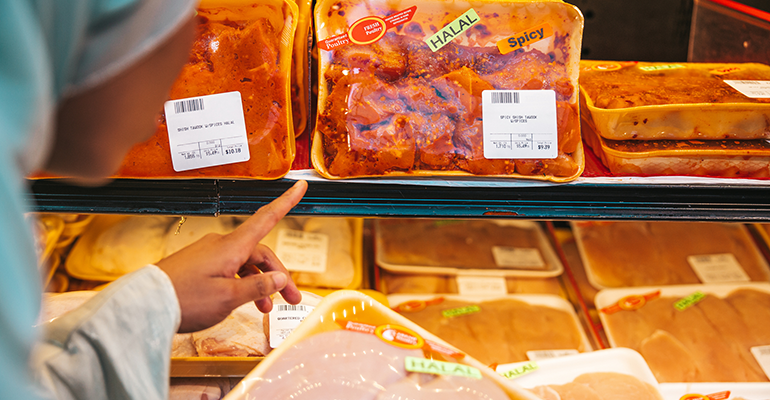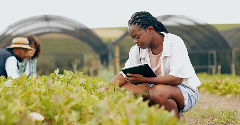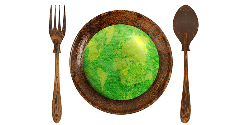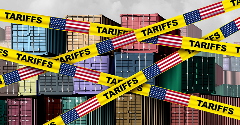News
Singapore's Islamic council: Cultivated meat can be halal
16 Feb 2024The Islamic Religious Council of Singapore (MUIS) has said that cultivated meat consumption is permissible as halal under certain conditions, and where a more “rigorous” set of requirements are needed to ensure consumer assurance.
In a public discussion, MUIS Director of Halal Development Zalman Ali deemed cultivated meat consumption permissible provided products had received pre-market approval by the Singapore Food Agency (SFA).

The parameters also set out rules governing cell traceability, facilities, which needed to be certified free from contaminants and non-halal materials, and that all ingredients used throughout process were halal.
Other stipulations stated that there was to be no cross mixing with non-halal materials with a rigorous testing regime and proper product labelling required.
Setting the agenda for Halal cultivated meat
“There is a global impetus for alternative, sustainable food solutions,” said the MUIS in a statement.
“While still currently in the developmental stage, with the eventual emergence of novel foods, it is necessary to have a clear religious position early on the permissibility of consumption of such foods.
“Following SFA’s approval of the sale of cultivated meat products in Singapore in 2020, this religious guidance was developed because of questions of its permissibility for Muslim consumption.
“This will be essential for any future plans for the halal certification of cultivated meat, to facilitate Muslim consumers making their own informed choice whether to consume such products, based on their dietary preferences.”
Shariah scholars set out world-first for halal cultivated meat production
MIUS’ official endorsement comes as leading Shariah scholars ruled cultivated meat could be halal back in Sept 2023, after they reviewed documentation prepared by GOOD Meat that described how cultivated chicken was made.
The panel studied details about how the cells are sourced and selected, the ingredients fed to the cells to stimulate growth, how the cells are harvested and how finished products are manufactured.
 © iStock/LeoPatrizi
© iStock/LeoPatrizi
The scholars concluded that cultivated meat could be halal provided the cell line was from an animal permissible to eat, such as a chicken or a cow and that the cell line was extracted from an animal slaughtered according to Islamic law.
Other stipulations ruled that the nutrients fed to the cells were permissible to eat and did not include any substances that are forbidden to be eaten such as spilled blood, alcohol or materials extracted from animals that have not been slaughtered properly or pigs.
Finally, the cultivated meat was edible and that it did not harm human health, confirmed by referring to specialists, such as a country’s food regulatory agency.
"If cultivated meat is to help address our future food system needs, it has to be an option for the billions of people around the world who eat halal,” said Josh Tetrick, CEO and co-founder of GOOD Meat, the cultivated meat division of food technology company Eat Just, Inc.
“This landmark ruling provides much needed clarity on how to ensure that is achieved. All companies should work to build a process to meet these guidelines."
‘Cultivated meat to make the leap from novelty to the norm’
MIUS’ announcement was met with a warm welcome by the alternative protein industry with the Good Food Institute APAC’s managing director Mirte Gosker commenting, “More than a billion people around the world adhere to halal food standards, so for cultivated meat to make the leap from novelty to the norm, it is crucial that there are viable pathways to achieve this certification.
“Building a truly inclusive, efficient, and secure protein production system requires making high-quality, nutrient-rich, and culturally relevant foods available to every facet of society.
“With MUIS’ precedent-setting announcement, Singapore is bringing that bold vision one step closer to reality.”
Related news

NMN: An on-trend ‘fountain of youth’ ingredient for anti-ageing products
24 Oct 2025
Dubbed an “on-trend fountain of youth ingredient” by Mintel, NMN is booming in anti-ageing ingestible products in Asia – but regulatory roadblocks are thwarting NPD efforts elsewhere, say experts.
Read more
Food security-insecurity gap grows, hitting vulnerable regions hardest
16 Oct 2025
While food security has increased in most countries, the world’s most vulnerable nations’ struggles continue and intensify, a USDA analysis reveals.
Read more
India’s biscuit and cookie consumers want extra indulgence
16 Sep 2025
Premiumisation, health consciousness, and a focus on texture are driving new product developments (NPD) in the Indian biscuit and cookie market, Mintel figures suggest.
Read more
Climate change threatens matcha supplies as social media fuels matcha mania
8 Sep 2025
Matcha’s popularity is rising across the globe, yet shrinking harvests caused by record-breaking heatwaves in Japan are dwindling global supplies.
Read more
Australia's snacking sector achieves near-universal appeal
22 Aug 2025
As many as 99% of Australian consumers snack daily, with generational differences and increasing demands presenting novel manufacturing opportunities, according to Mintel data.
Read more
World Food Safety Day shines a spotlight on science
19 Jun 2025
On 7 June, the World Health Organization (WHO) held its annual World Food Safety Day, highlighting the role scientific research and innovation play in supporting consumers’ health.
Read more
Africa and Middle East most vulnerable markets to food fraud
28 May 2025
Consumers in Africa and the Middle East face a higher risk of consuming adulterated foods – especially with tariffs causing chaos in the global food supply chain, experts warn.
Read more
East takes on West in the fight for future food flavours
30 Apr 2025
Asian and South American flavours are now key components on global menus, driven by a growing global appetite for culinary mashups.
Read more
Will Trump lower tariff hikes?
25 Apr 2025
The US President’s plan to reduce the 145% tariffs on China’s food and beverage market raises questions over whether a turnaround is likely for other regions.
Read more
Future F&B flavours favour exploration and explosive taste profiles
25 Mar 2025
Exploration and experimentation will define the future of flavour, according to Mintel, as consumers seek out taste profiles and textures that offer an adventurous eating experience.
Read more